Aram Bartholl
Package ready for pickup
08 Jul 2023 - 25 Feb 2024
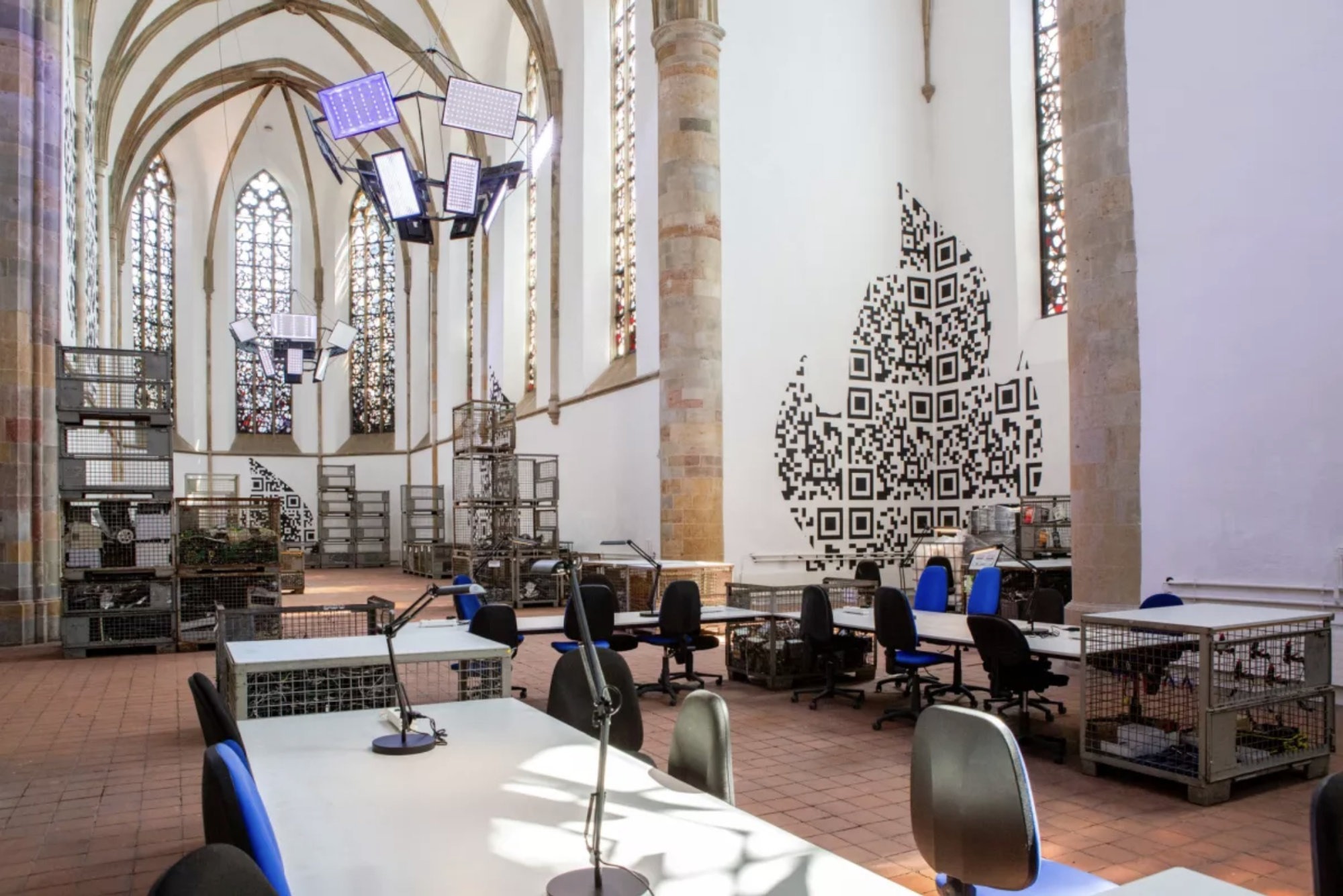
Aram Bartholl, Package ready for pickup, installation view Kunsthalle Osnabrück, 2023. Courtesy Aram Bartholl and Kunsthalle Osnabrück. Photo: Lucie Marsmann
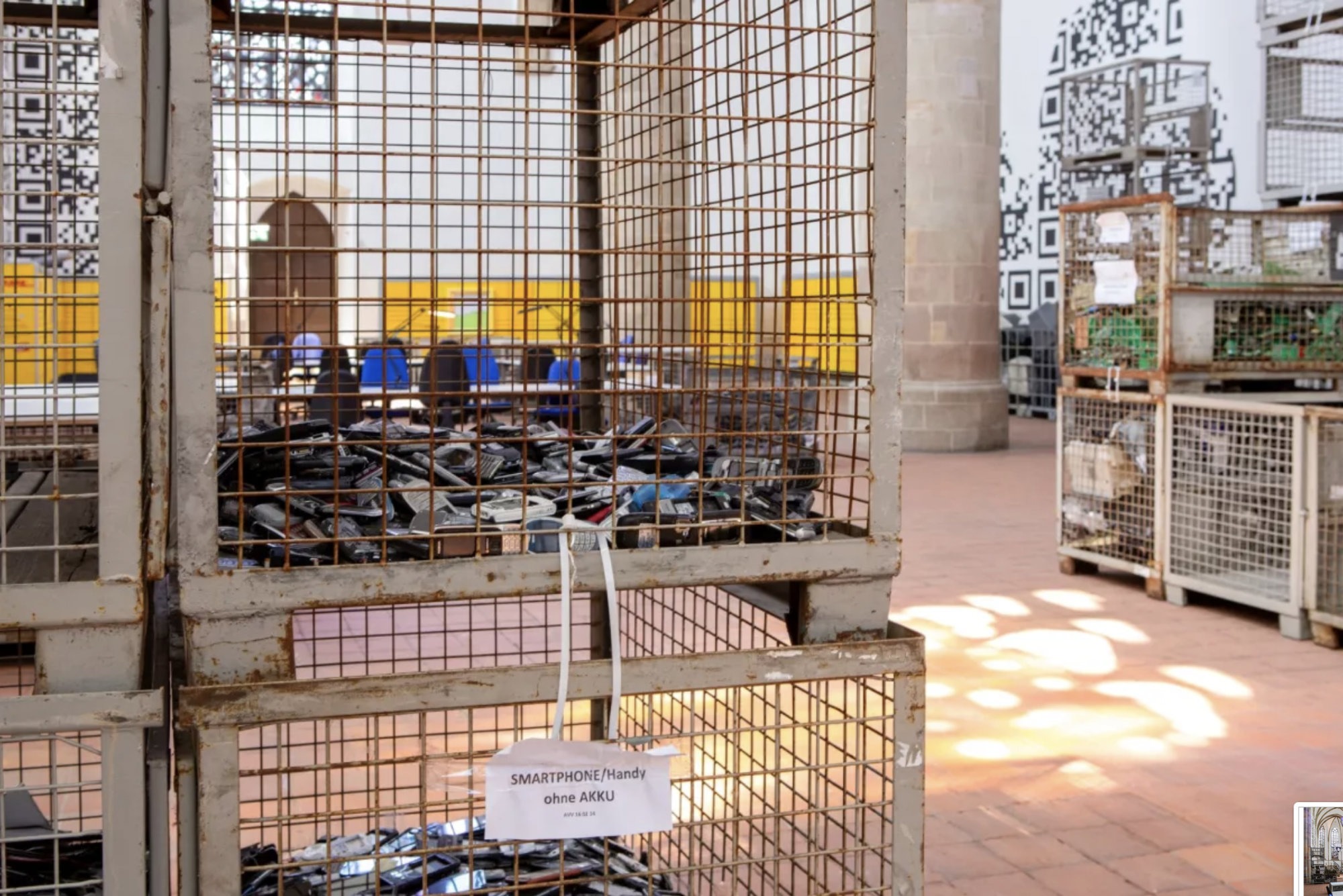
Aram Bartholl, Package ready for pickup, installation view Kunsthalle Osnabrück, 2023. Courtesy Aram Bartholl and Kunsthalle Osnabrück. Photo: Lucie Marsmann
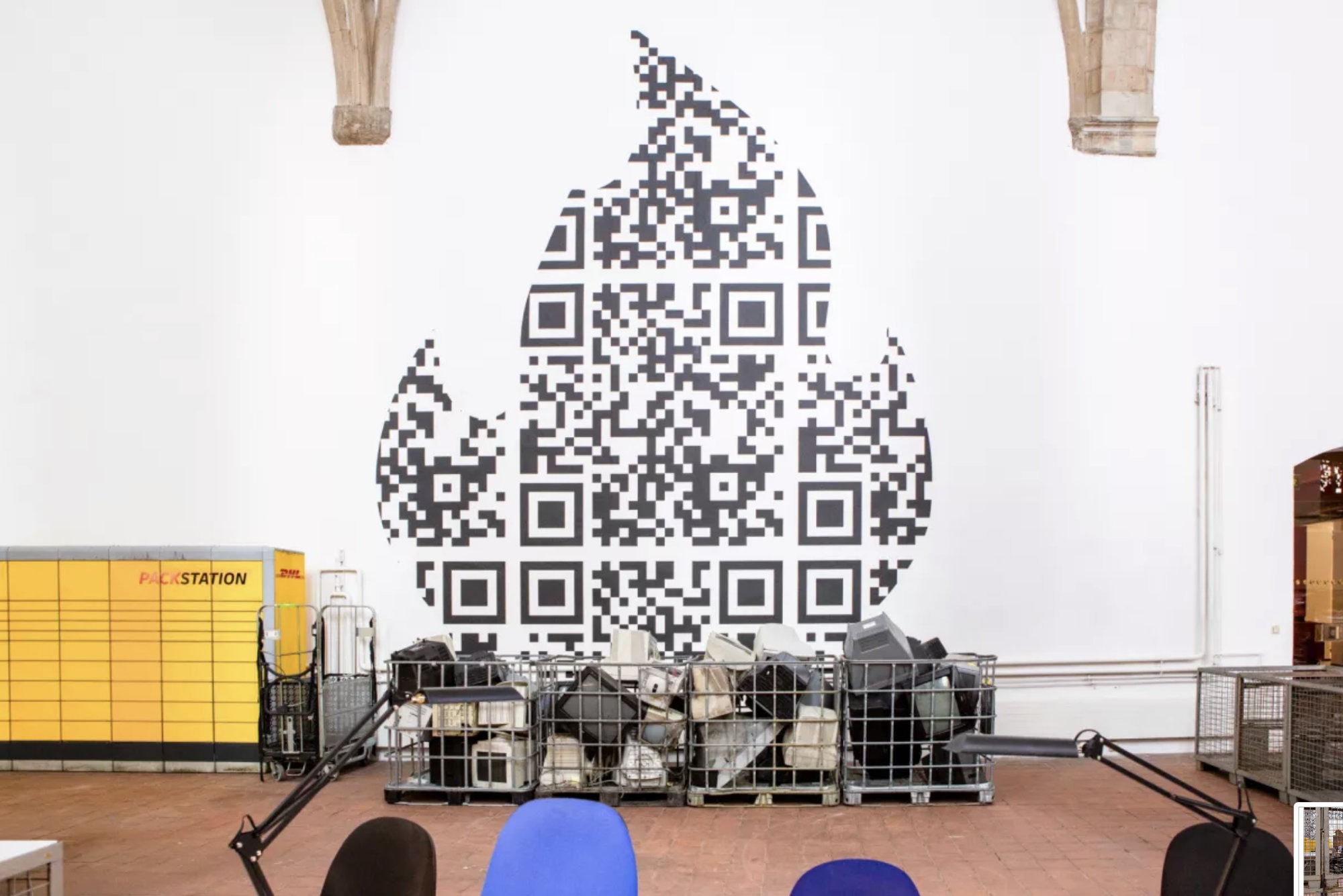
Aram Bartholl, Package ready for pickup, installation view Kunsthalle Osnabrück, 2023. Courtesy Aram Bartholl and Kunsthalle Osnabrück. Photo: Lucie Marsmann
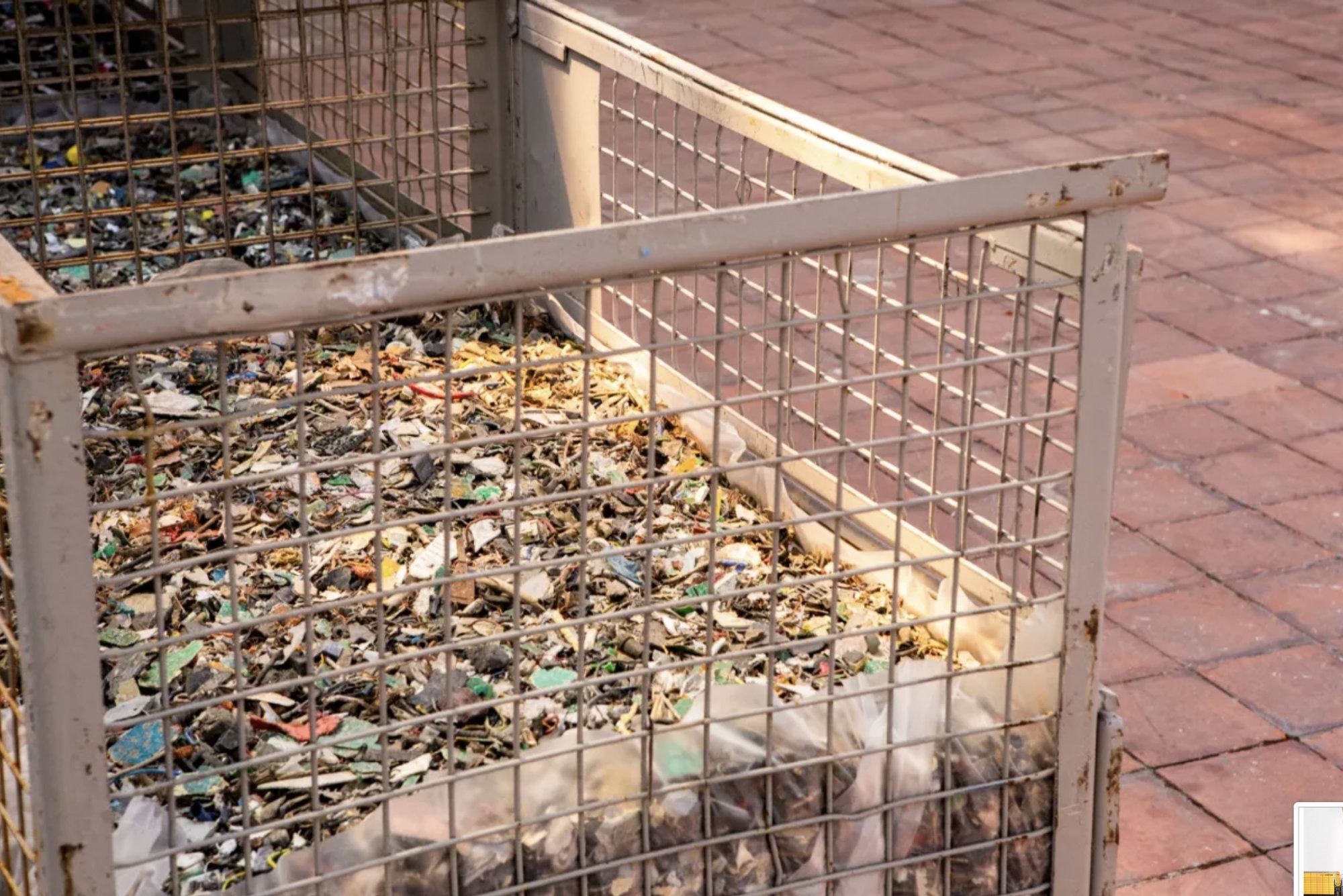
Aram Bartholl, Package ready for pickup, installation view Kunsthalle Osnabrück, 2023. Courtesy Aram Bartholl and Kunsthalle Osnabrück. Photo: Lucie Marsmann
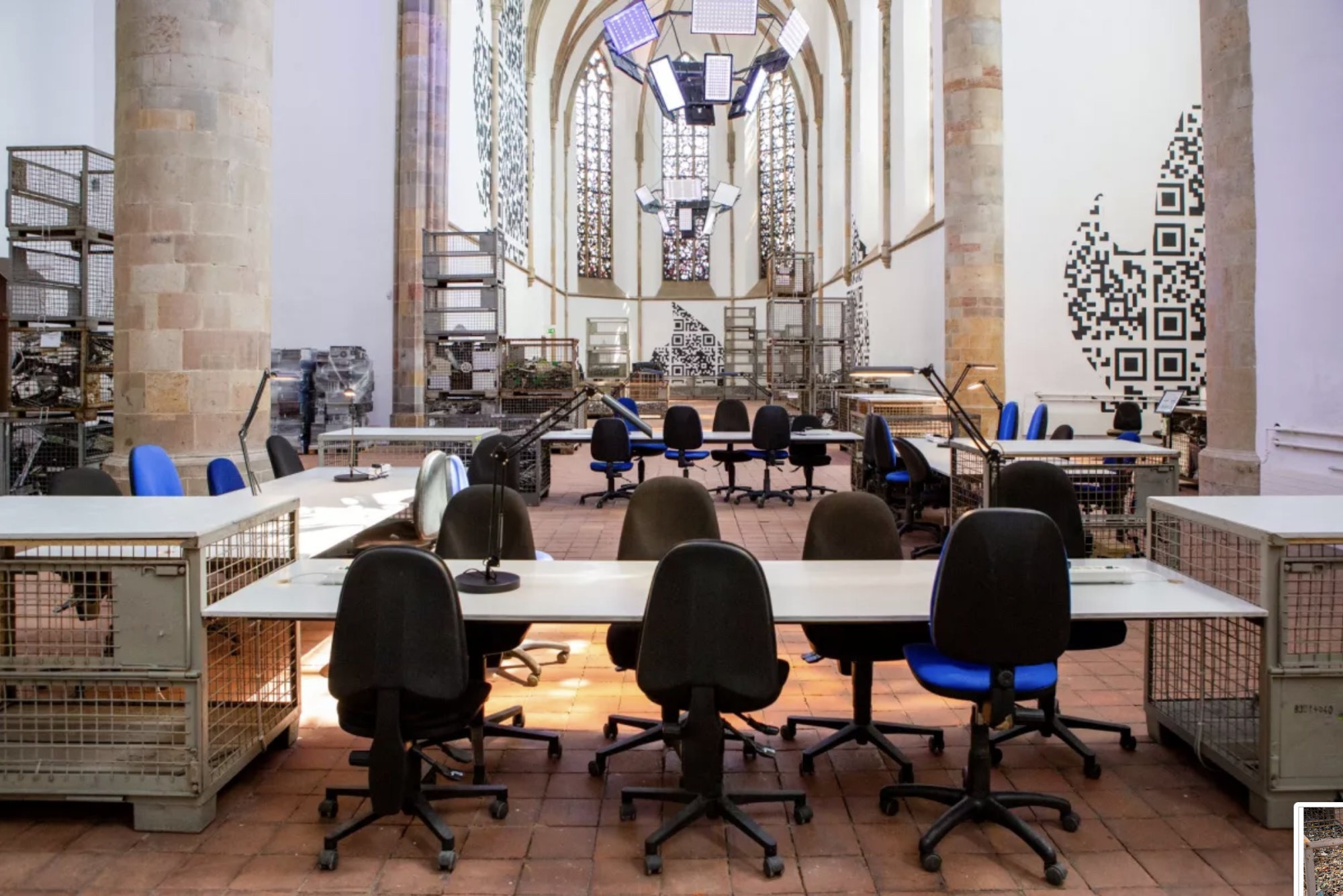
Aram Bartholl, Package ready for pickup, installation view Kunsthalle Osnabrück, 2023. Courtesy Aram Bartholl and Kunsthalle Osnabrück. Photo: Lucie Marsmann
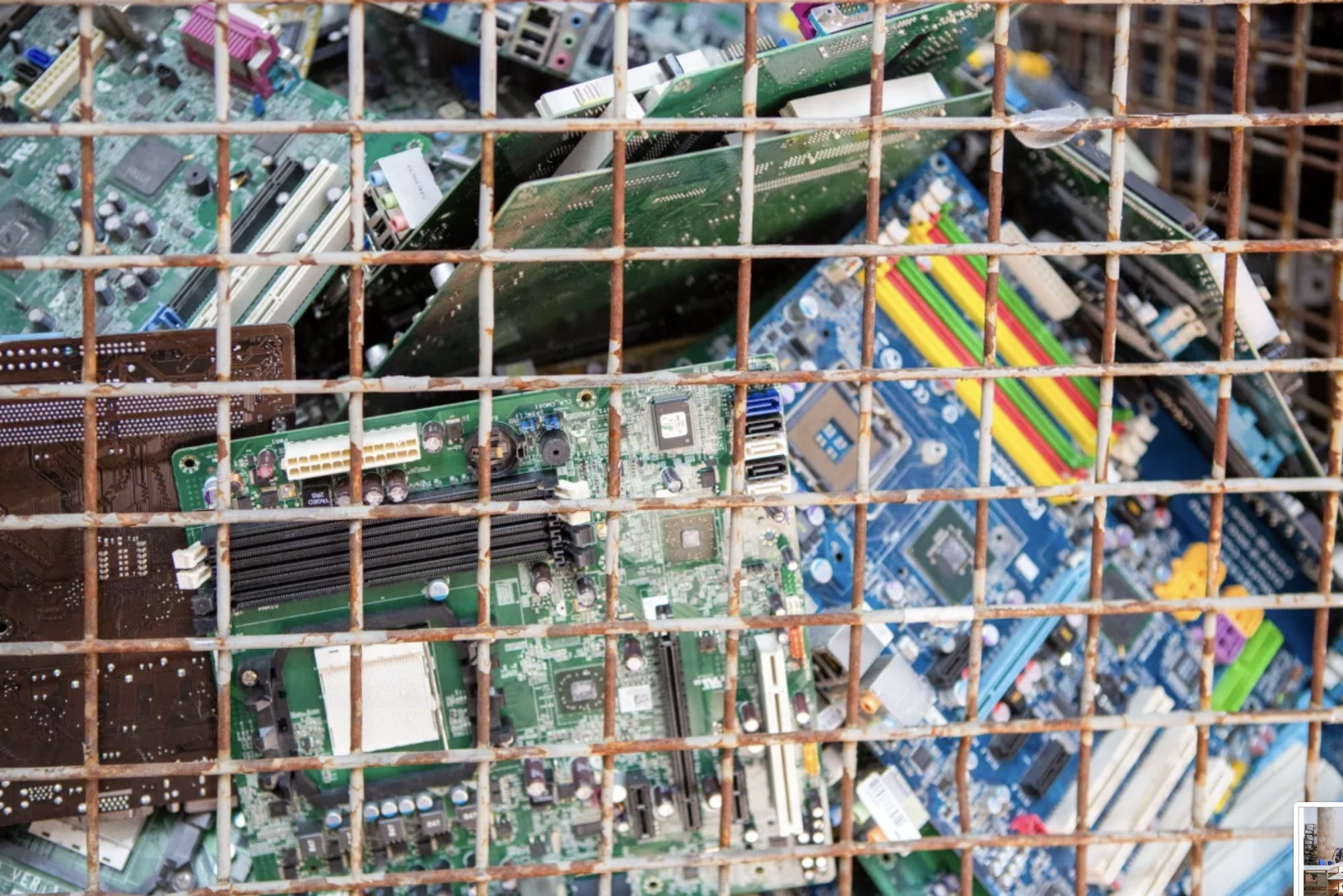
Aram Bartholl, Package ready for pickup, installation view Kunsthalle Osnabrück, 2023. Courtesy Aram Bartholl and Kunsthalle Osnabrück. Photo: Lucie Marsmann
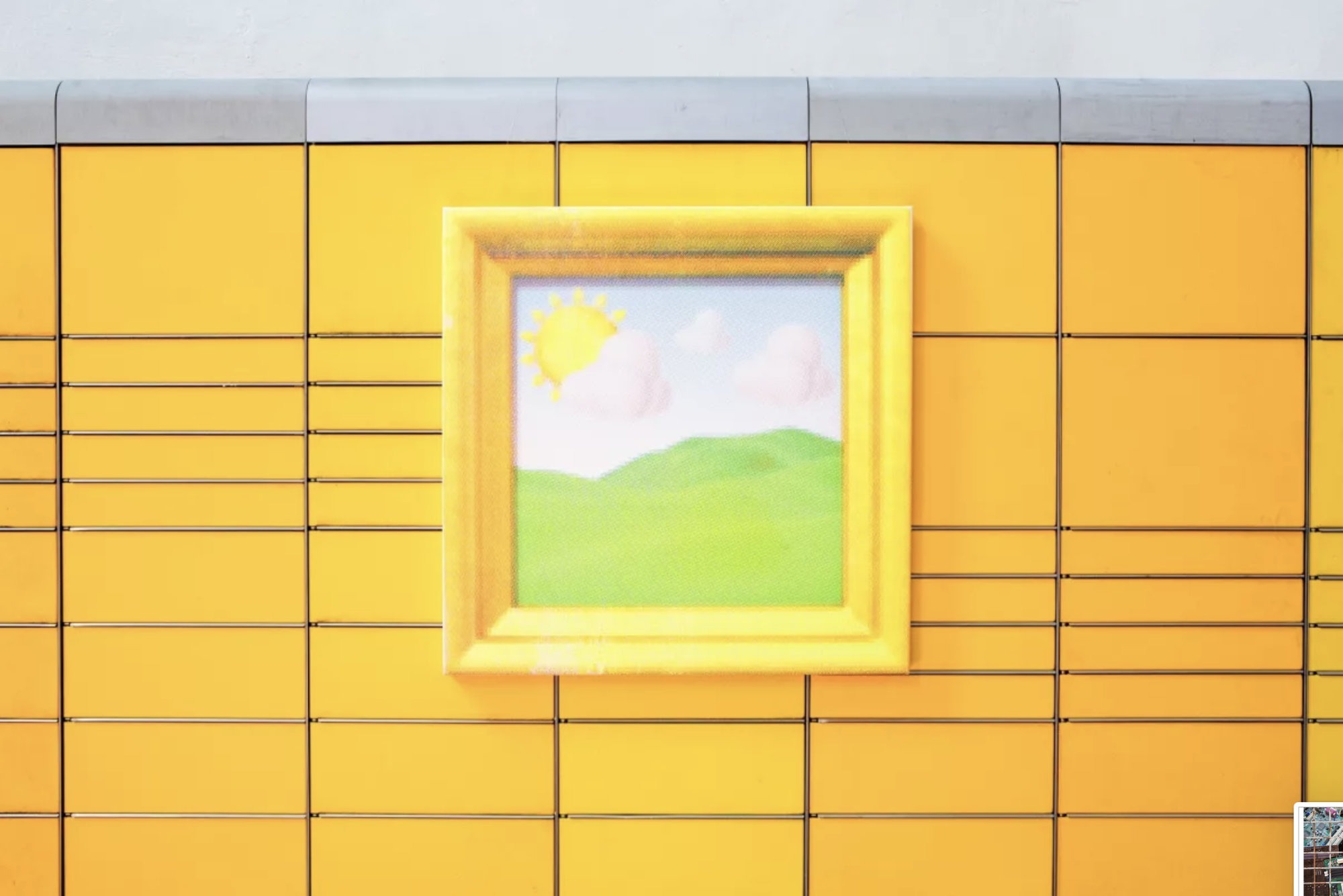
Aram Bartholl, Package ready for pickup, installation view Kunsthalle Osnabrück, 2023. Courtesy Aram Bartholl and Kunsthalle Osnabrück. Photo: Lucie Marsmann
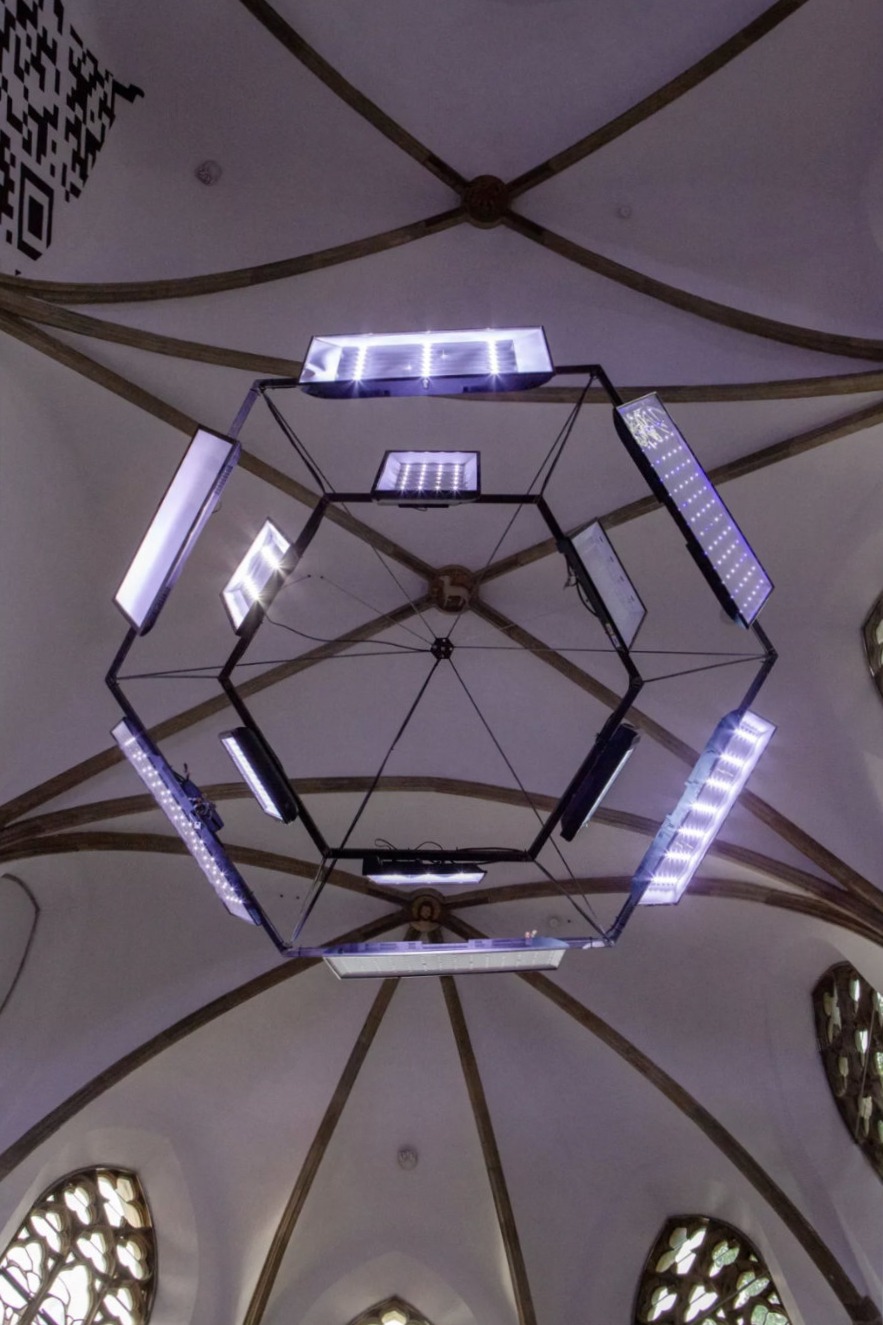
Aram Bartholl, Package ready for pickup, installation view Kunsthalle Osnabrück, 2023. Courtesy Aram Bartholl and Kunsthalle Osnabrück. Photo: Lucie Marsmann
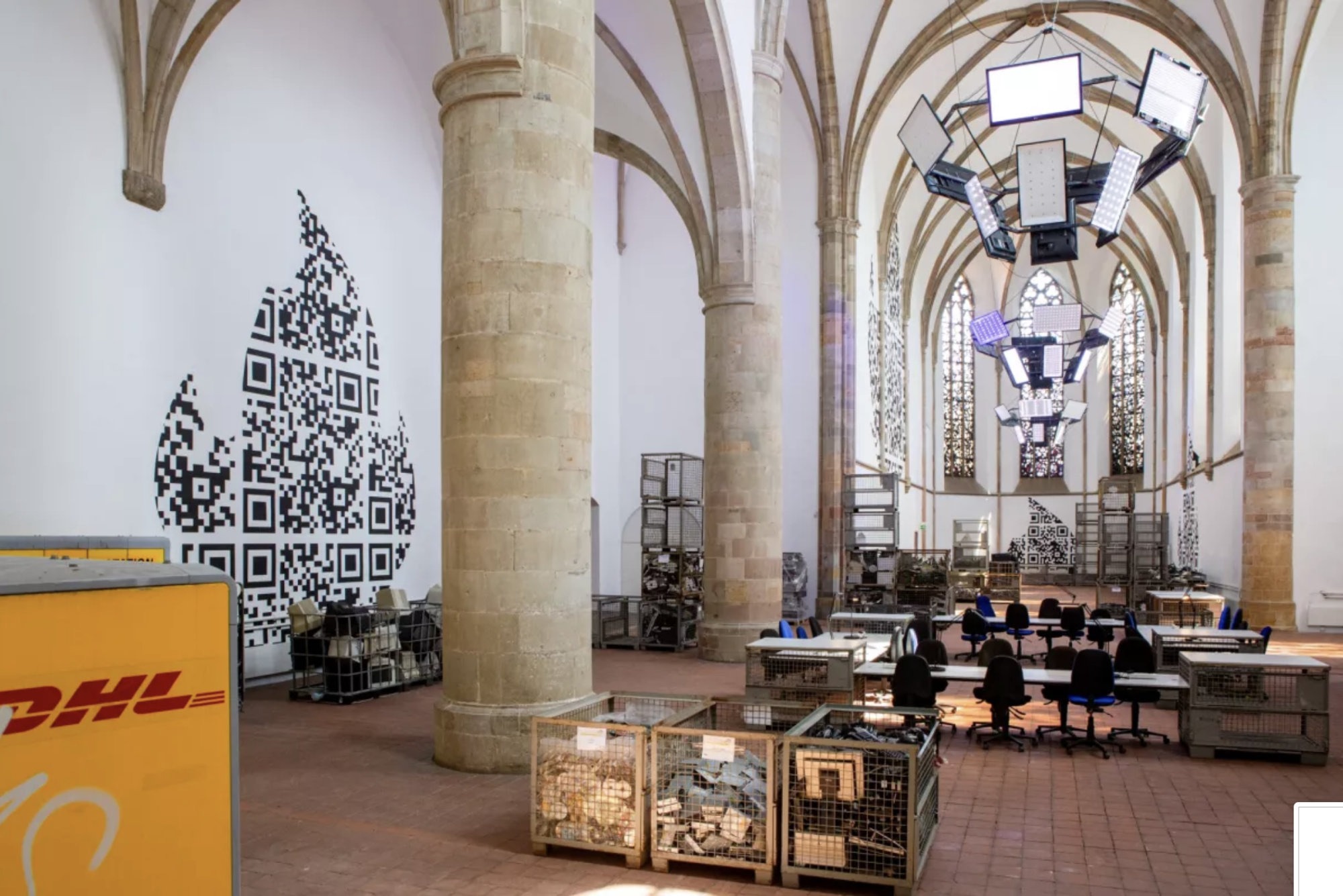
Aram Bartholl, Package ready for pickup, installation view Kunsthalle Osnabrück, 2023. Courtesy Aram Bartholl and Kunsthalle Osnabrück. Photo: Lucie Marsmann
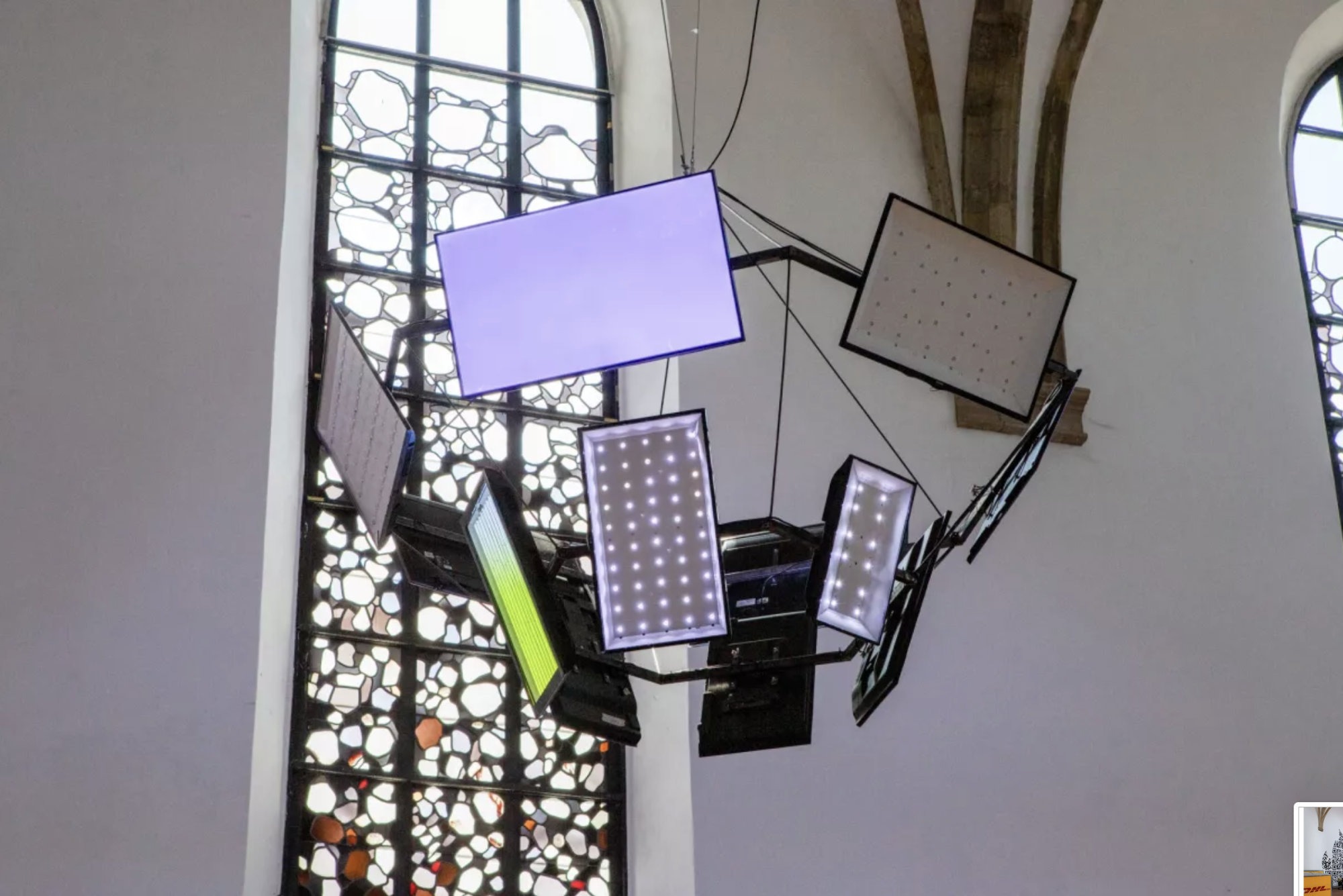
Aram Bartholl, Package ready for pickup, installation view Kunsthalle Osnabrück, 2023. Courtesy Aram Bartholl and Kunsthalle Osnabrück. Photo: Lucie Marsmann
The Kunsthalle Osnabrück is celebrating its anniversary this year. The anniversary kicks off with the solo exhibition of the artist Aram Bartholl. It is the most comprehensive exhibition of his work to date. Aram Bartholl was born in Bremen and is working in Berlin. He was one of the first persons in Germany to deal artistically with conflicts of digitality and automation. [Digitalisation means: many tasks are performed using computers and computer programmes. And automation means: machines are used for more and more things. No more people]. These conflicts are changing our way of living together.
Aram Bartholl originally comes from the field of architecture. Now his work focuses on performative interventions, sculptures and workshops. [Performative interventions take place in public spaces. For example, they can be short scenes, as e.g. from a theatre play]. In his art, Aram Bartholl questions how we use media. How do we use social networks and online platforms? How are we monitored on these sites? How is data being spread on the internet? And how can our data be safe? Are we dependent on technology? Aram Bartholl draws attention to the gaps, contradictions or absurdities of our digital everyday life.
For the Kunsthalle Osnabrück, the artist transforms the church interior into a walk-in recycling yard for electrical appliances. A walk-through parcours built of piled up electronic waste makes the amount of recycled material of our possessions visible. This creates a unique environment for the diverse mediation offers such as workshops, repair shops and repair cafés, excursions, lectures and film screenings. These events take place in the installation during its running time. Oversized QR codes can be seen on the church walls. They raise critical questions about our responsibility for our handling of climate change, environmental protection, energy resources, raw materials and labour rights in the digital society. Also about the use and consumption of electronic devices.
Another highlight of the exhibition is a 30-metre-long DHL packstation. There, parcels can be picked up and dropped off at the Kunsthalle during the exhibition.
Solo exhibitions by Aram Bartholl have been shown at international institutions including Kunstverein Arnsberg (2021), ZKM, Karlsruhe (2020), Import Projects, Berlin, SMAC, Berlin, Emmanuel Art Gallery, Denver (all 2019), Palais de Tokyo, Paris (2015) or Kasseler Kunstverein (2013). Extensive works and new productions by him were also represented at the Werkleitz Festival “Model and Ruin”, the San Francisco Museum of Modern Art (both 2019), the Biennale d’art contemporain de Strasbourg, the Thailand Biennale, the Seoul Museum of Art (all 2018) as well as at Skulptur Projekte Münster and the Hyperpavillion at the Venice Biennale (both 2017).
Aram Bartholl originally comes from the field of architecture. Now his work focuses on performative interventions, sculptures and workshops. [Performative interventions take place in public spaces. For example, they can be short scenes, as e.g. from a theatre play]. In his art, Aram Bartholl questions how we use media. How do we use social networks and online platforms? How are we monitored on these sites? How is data being spread on the internet? And how can our data be safe? Are we dependent on technology? Aram Bartholl draws attention to the gaps, contradictions or absurdities of our digital everyday life.
For the Kunsthalle Osnabrück, the artist transforms the church interior into a walk-in recycling yard for electrical appliances. A walk-through parcours built of piled up electronic waste makes the amount of recycled material of our possessions visible. This creates a unique environment for the diverse mediation offers such as workshops, repair shops and repair cafés, excursions, lectures and film screenings. These events take place in the installation during its running time. Oversized QR codes can be seen on the church walls. They raise critical questions about our responsibility for our handling of climate change, environmental protection, energy resources, raw materials and labour rights in the digital society. Also about the use and consumption of electronic devices.
Another highlight of the exhibition is a 30-metre-long DHL packstation. There, parcels can be picked up and dropped off at the Kunsthalle during the exhibition.
Solo exhibitions by Aram Bartholl have been shown at international institutions including Kunstverein Arnsberg (2021), ZKM, Karlsruhe (2020), Import Projects, Berlin, SMAC, Berlin, Emmanuel Art Gallery, Denver (all 2019), Palais de Tokyo, Paris (2015) or Kasseler Kunstverein (2013). Extensive works and new productions by him were also represented at the Werkleitz Festival “Model and Ruin”, the San Francisco Museum of Modern Art (both 2019), the Biennale d’art contemporain de Strasbourg, the Thailand Biennale, the Seoul Museum of Art (all 2018) as well as at Skulptur Projekte Münster and the Hyperpavillion at the Venice Biennale (both 2017).
